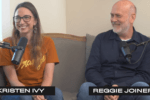Sometimes people allow themselves to become objects in order to survive emotionally. As an object, they can project anything they want to those around them in an attempt to be accepted and survive. But as an object, you will have struggles connecting emotionally, especially in romantic relationships. As an object, you will also struggle with being authentic.
If you made choices to survive that have led you to become an object, your choices might have been the best you could have made at that time. It is important to not feel shame about the choices you made when you were a child or teenager in response to your circumstances. Something I have learned along my personal journey to healing is that those choices I made and things I brought into my life to survive also kept me from living—really living.
I want you to absolutely know that you can move from object to being and from surviving to living. Over my career, I have helped many people through this process. My hope is that as you walk through the process, lights will come on and hope will begin to happen for you in a whole new way.
Below are a few characteristics of people who struggle with being objects.
- Uncomfortable with their flaws. As an object, you feel either all good or all bad. If you are all good by your own measure, you are lovable. If you are flawed, you are all bad and therefore unlovable.
- Rarely apologize. They find it difficult to believe they can be both flawed and loved. Rather, they believe they are either flawed or loved. Apologizing means they are flawed and puts them into the “all bad” box; apologizing means they are not loved.
- They measure themselves. The object person measures himself against others. They see themselves as better than or less than for various reasons.
- They measure their giving. The object person feels they are like a book, so when they give (especially in marriage or committed relationships) they are ripping out a page of the book. Eventually, they fear they will find themselves without pages and empty.
- Giving is painful. I am not talking about time, gifts, abilities, or money. Giving the heart is painful for an object.
- Feelings and connecting to feelings are a real challenge. In an object relationship with one’s self and others, it is about manipulating images and perspectives to look good or be acceptable.
- They tend to read their spouse’s and other people’s minds, but almost always in the negative. They believe their spouse has certain motives, project those motives onto their spouses, and treat them as if the projection is reality, regardless of the spouses’ insistence to the contrary.
- They tend to relate to themselves and others as functions. People in object relationships tend to see people more for what they do than who they are.
Moving from object to being has been one of the harder things I have ever done, but I am so glad I did. Because I did, I know almost anyone can do it. It takes work, but it is definitely a way to make progress.
A being is nothing like an object. A being is absolutely immeasurable in intellect, spirit, desire, experience, history, or personality. As a being, you are not only immeasurable, unfathomable, and unique, but you are also unlimited and eternal.
You are unlimited, and years or decades from now, you will have emotions, spirit, intellect and energy to have and give away at will.
As a being you can give 10 percent, 20 percent or more to a spouse, friend or family member and still have 100 percent of you left. In my experience, when I give, I expand. I can come home after giving to clients and give to my wife, my children and even my dog, and still have 100 percent of me left.
I am a being and I have almost limitless resources. My resources are replenished daily, and over time, have an opportunity to expand again. I do not feel or keep track of my giving as I give from my being, not as an object. People have inherent, immeasurable value, so it is a privilege to serve and give to them as I can. There is no pain in giving because it is not expensive to give of yourself.
I would like to give you some characteristics of people who are beings. Some people are just born this way and stay this way regardless of their life circumstances. Others are nurtured during childhood and adolescence, and being them is the only thing they know.
Here are their characteristics:
- Others are equal. Someone who is a being sees others as having value. He is equal to those around him and others are equal to him.
- Being flawed is being human. They accept that they can and do make mistakes and are quick to take responsibility for them. Mistakes are just part of the learning process of life and self-discovery.
- Inquiry before judgment. A being will mostly give people the benefit of the doubt and will inquire as to the reasoning or circumstances surrounding someone’s behavior.
- Giving is loving. A being gives throughout the day by being present and available. There is no way to track giving; it is as normal as breathing.
- Feelings. A being can be authentic in almost any situation. She can share how she feels regardless of the other person’s level of maturity.
- People have value. Regardless of a person’s function or direct contribution, people innately have value. How they feel and what they are going through is significant.
I believe your true DNA is available and absolutely worth releasing into the world. Your unique DNA can have a very positive influence in this world. You can blossom and become that amazing person you were intended to become. I have committed my life to seeing people reach their true potential.
I liken the process to the destiny of a seed. Inside the seed is its own DNA. A sunflower seed becomes a sunflower. Your DNA of being is inside of you and was there way before you had to erect the protective mechanisms around you, moving you toward an object relationship with yourself or others.
You must crack the shell and let out the life in you—the real, authentic you—little by little. It feels hard at first, like the seed pushing through the dirt. As you do it, it may even seem counterintuitive. You must let go of the illusion that the shell keeps you safe. The price you pay for believing in safety is real, so push and push.
Believe me, a day will come when it seems easier to be authentic than to be an object. You are no longer pushing against something; you are growing towards being something. It becomes almost natural to grow. Being authentic and flawed become easier, and being an object feels more and more uncomfortable. {eoa}
Doug Weiss, Ph.D., is a nationally known author, speaker and licensed psychologist. He is the executive director of Heart to Heart Counseling Center in Colorado Springs, Colorado, and the author of several books including, Emotional Fitness.You may contact Dr. Weiss via his website, drdougweiss.com, by phone at 719-278-3708 or through email at [email protected].







Leave a Comment
You must be logged in to post a comment.